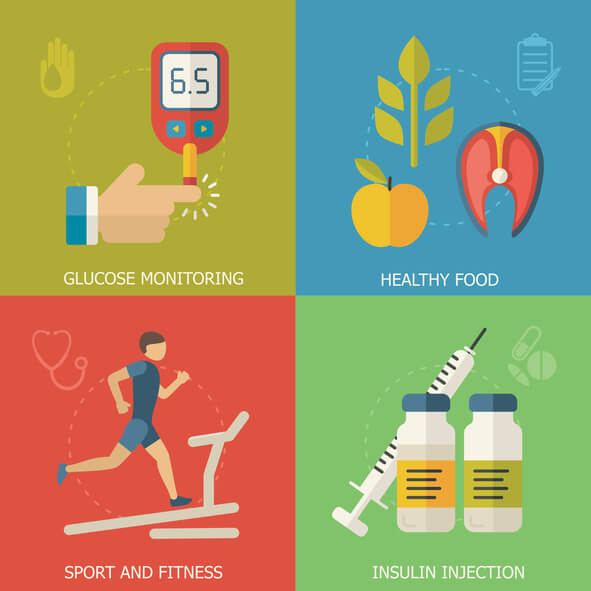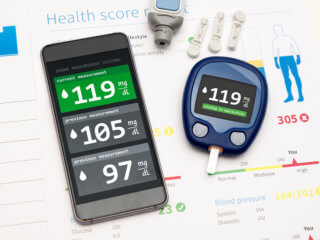As we move into an increasingly evidence-based health care system, it becomes critical for providers to embrace data for numerous reasons. Assistive and core data can help health care providers to formulate a reliable picture of patient’s medical condition and can help in early detection of diseases like diabetes. Companies like EPSBio have launched wearable glucose meter that can monitor blood glucose level, sleep patterns, calories intake and physical work done by the user to generate health data.
Assistive data and core data
Assistive data gives the users an idea of their fitness condition for preventative purposes only, while Core data monitor their state of health that helps medical professionals and doctors in providing treatment to patients. Assistive data is tracked using wearable devices and continuously monitor users’ steps, calories intake, sleep, etc. Core data includes monitoring heart rate, blood pressure, blood glucose level which is used by health care providers to provide quality health care.
Importance of tracking blood sugar level
According to International Diabetes Association, one in 11 adults has diabetes, and one in two adults with diabetes is undiagnosed. Thus, keeping track of blood glucose level is of utmost importance. The resulting data will help in analyzing how exercise and diet affect blood glucose level and monitoring effects of different medications on blood sugar level. Inferences drawn from this data can help patients and health care providers to take necessary decisions well on time.
| Recommended for you | |
| Gamification in early diabetes detection | |
| Diabetes prevention programs | |
| Blockchain technology to help in diabetes prevention |
EPSBio brings out world’s first wearable glucose meter
Non-invasive methods to check blood glucose level has certain limitations which include glucose specificity, substance complexity, interference of the sample with the environment among others. Thus, the results produced using non-invasive technology are not highly reliable.
In the last three years, there have not been any significant improvements in glucose meters. EPSBio, a Taiwan-based glucose meter manufacturer, came up with first wearable glucose meter – Sugarwatch. It is elegant looking that measures glucose level using biosensor technology. It features color warning system to represent glucose level as high or low. Equipped with Bluetooth, Sugarwatchis able to synchronize all the data to the smartphones which can be used with other health data like sleep patterns and calories intake to arrive at meaningful conclusions.
Some continuous glucose monitoring devices have been floating around in the market, and they work on the concept of time series. Assistive and core data can prove to be a large source of information for a patient’s health record. Different analysis and machine learning techniques can be applied to this data to arrive at important conclusions which can be used by health care providers to provide timely and quality health care.
| Technologies | Medical Problems | Research Areas |
|---|---|---|
| Wearable devices, Smart Watches | Diabetes | Biosensor technology, non-invasive techniques for measuring blood glucose level. |
Speaker: Josephine Yang, EPSBio
Video URL: https://www.youtube.com/watch?v=Wq-b4Slw5VY&list=PL98iSagl_rnIwKONL-dQmj9Y1mOGAjvW8&index=50
Upload Date: 28th November 2016
Video code: 16G404
EPSBio: http://epsbio.com/
Image credit: www.istockphoto.com

















